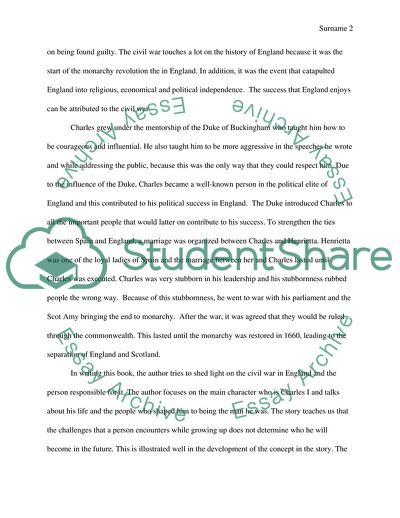Cite this document
(Hibbert, Christopher. Charles I: A Life of Religion, War and Treason Book Report/Review - 2, n.d.)
Hibbert, Christopher. Charles I: A Life of Religion, War and Treason Book Report/Review - 2. https://studentshare.org/literature/1811933-charles
Hibbert, Christopher. Charles I: A Life of Religion, War and Treason Book Report/Review - 2. https://studentshare.org/literature/1811933-charles
(Hibbert, Christopher. Charles I: A Life of Religion, War and Treason Book Report/Review - 2)
Hibbert, Christopher. Charles I: A Life of Religion, War and Treason Book Report/Review - 2. https://studentshare.org/literature/1811933-charles.
Hibbert, Christopher. Charles I: A Life of Religion, War and Treason Book Report/Review - 2. https://studentshare.org/literature/1811933-charles.
“Hibbert, Christopher. Charles I: A Life of Religion, War and Treason Book Report/Review - 2”. https://studentshare.org/literature/1811933-charles.


